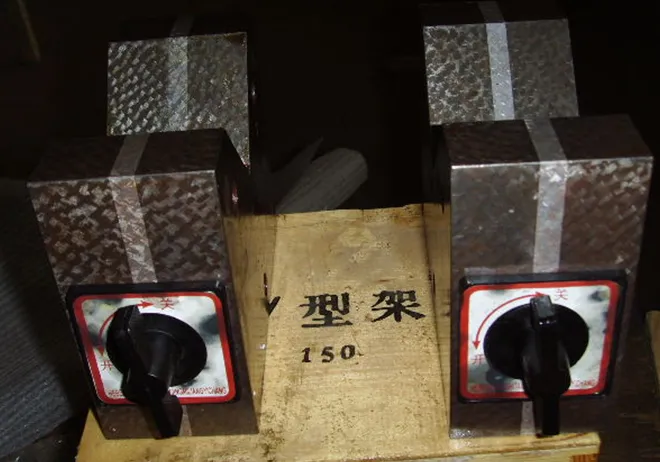Лис . 21, 2024 05:56 Back to list
types of plug gauge
Types of Plug Gauge A Comprehensive Overview
A plug gauge is a precision instrument commonly used in manufacturing and quality control processes to determine the dimensions of holes, ensuring they meet specified tolerances. Essential for maintaining high standards of accuracy in production, plug gauges are designed to either fit or not fit into a hole, thus indicating whether the hole is within acceptable size limits. This article explores the various types of plug gauges, their applications, and their significance in industrial settings.
1. Basic Types of Plug Gauges
Plug gauges come in different types, primarily categorized into go/no-go gauges. These types play a crucial role in compliance with manufacturing standards
- Go Gauge A go gauge is designed to fit snugly into the target hole. If the gauge fits, it confirms that the hole is within the acceptable lower limit of its size tolerance. This type is essential for verifying that components and parts can be assembled correctly.
- No-Go Gauge In contrast, a no-go gauge does not fit into the hole if the hole is within specifications. If the no-go gauge fits, it indicates that the hole is oversize and not acceptable. This dual approach helps manufacturers avoid parts that do not meet critical size requirements.
2. Material Considerations
Plug gauges can be made from various materials, typically including hardened steel, carbide, and other high-strength alloys. The choice of material often depends on the application and the expected wear of the gauge. For instance
- Hardened Steel Commonly used due to its balance between cost and durability, hardened steel gauges are effective for general-purpose applications.
- Carbide Gauges Carbide is significantly harder than steel and is resistant to wear, making carbide plug gauges suitable for high-volume production environments where longevity is crucial.
3. Fixed and Adjustable Plug Gauges
Plug gauges can also be classified based on their adjustability
- Fixed Plug Gauges These are manufactured to specific dimensions and do not allow for any adjustment. They are ideal for high-precision applications where consistent measurements are essential.
types of plug gauge

- Adjustable Plug Gauges These can be modified to different sizes, making them versatile for various applications. They are often used in situations where production requirements may change or when testing multiple components of differing sizes.
4. Usage in Industry
Plug gauges are integral to various industries such as automotive, aerospace, and manufacturing. Their precision allows for
- Ensuring Fit and Functionality By confirming that holes are within acceptable tolerances, plug gauges help ensure that parts fit together correctly, leading to effective assembly and operation.
- Reducing Reject Rates Regular testing with plug gauges can identify problematic dimensions early in the production process, thereby reducing overall reject rates and saving costs associated with rework.
- Quality Assurance Plug gauges support rigorous quality assurance processes by providing accurate measurements that can be documented and tracked over time. This documentation is vital for compliance with industry standards.
5. Calibration and Maintenance
Like all measuring instruments, plug gauges require regular calibration and maintenance to ensure accuracy. Factors such as wear, environmental conditions, and frequency of use can affect their performance. Best practices for maintaining plug gauges include
- Regular Calibration Implementing a schedule for regular calibration with known standards helps maintain the accuracy of the gauges.
- Proper Storage Storing gauges in protective cases and away from environmental extremes can prevent damage.
- Cleaning Keeping the gauges clean from contaminants enhances their accuracy and longevity.
Conclusion
Plug gauges are essential tools in manufacturing and quality control, providing a straightforward method for verifying hole dimensions. With various types including go/no-go gauges, and options for different materials and adjustability, they serve countless applications across numerous industries. Understanding the functions, classifications, and maintenance requirements of plug gauges is critical for ensuring precision in production and maintaining high-quality standards. As industries continue to evolve, the role of plug gauges remains fundamental, supporting the quest for efficiency and accuracy in engineering processes.
-
Why Metric Trapezoidal Thread is Ideal for Precision Motion ControlNewsAug.05,2025
-
The Unique Properties of a Block of Granite for Industrial UseNewsAug.05,2025
-
The Role of Flanged Y Strainers in Preventing Pipeline ClogsNewsAug.05,2025
-
The Importance of Regular Calibration for Master Ring GagesNewsAug.05,2025
-
How a Cast Iron Surface Table Enhances Accuracy in ManufacturingNewsAug.05,2025
-
Comparing Different Check Valve Types for Optimal Flow ControlNewsAug.05,2025
Related PRODUCTS









